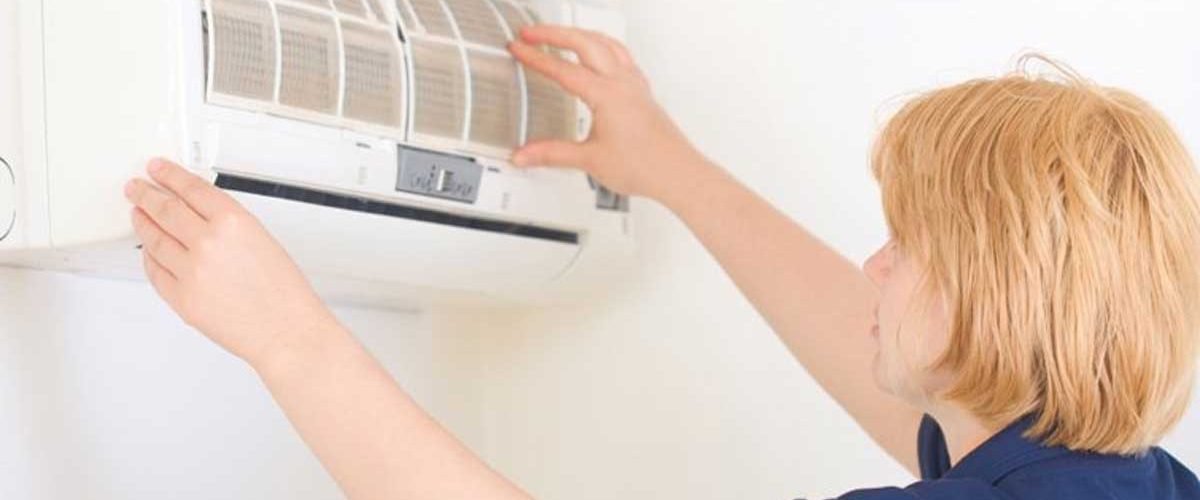In the US, the annual temperature has increased by an estimated 1.2° Fahrenheit from 1986 to 2016. That may seem low, but it’s actually causing hot days to become even hotter and occur at a more frequent rate.
As such, health experts remind everyone to seek shelter during scorching hot days. For starters, the CDC recommends staying in air-conditioned rooms as much as possible. After all, extreme heat can cause illnesses, and in some cases, even be fatal.
However, a faulty AC unit may fail to do its job of cooling your home down. In this case, the air inside your home may feel as warm as or even hotter than outdoor air. You should call a repair technician before your home feels like an oven.
We put together the top signs you need to get in touch with a licensed AC tech ASAP, so be sure to read on.

Table of Contents
1. Inaccurate Thermostat
All home AC units rely on a thermostat, a device that reads the ambient temperature. It uses the temperature readings it takes to trigger the cooling cycle of an air conditioner. The cycle starts if the ambient temp is higher than what you set the thermostat to.
Let’s say you want to follow the recommended AC thermostat setting of 78 °F when you’re at home. Once you input this into your thermostat, it will take a reading of your home’s indoor temperature. If the ambient temp is higher than 78° F, the thermostat will turn your AC on so that it can start cooling the air.
Once the temperature goes down to your preferred level, the thermostat signals the AC to turn off. It will remain that way until the temperature goes beyond 78° F, in which case, the cooling cycle starts again.
If you have an inaccurate thermostat, it will take incorrect temperature readings. As a result, your window, split, or central AC unit can end up turning off before the air cools to your desired setting. The air won’t feel cool enough, and you’ll feel uncomfortably warm inside your home.
In many cases, thermostat inaccuracies occur due to dirt build-up within the device. These issues can also happen if the device is in direct sunlight or too near devices that emit heat. A really old thermostat or problems with its wirings and calibration may also be to blame.
An AC repair expert can determine and resolve the root cause of your faulty thermostat. Possible fixes include rewiring, re-calibrating, relocating, or replacing the device.
2. Blows Out Warm Instead of Cold Air
Some air conditioning systems, such as portable and split AC unit models, have a heat mode. These come with a heat pump that provides cooling in the summer and heating in the winter. They utilize a reverse cycle technology that allows them to work both as a cooler and a heater.
Defective thermostats can cause the heating mode of such AC units to activate. In this case, the air conditioner goes into heating mode, which is why you can feel warm air coming out of the AC. Another possible culprit is a faulty control board.
Before you call an AC repair expert, check your air conditioner’s setting first. If it’s in heat mode, switch it back to cooling mode and monitor both the thermostat and the air. If it keeps going back to heat mode, it’s time to call a technician.
3. No Cold Air at All
If the air coming out of your AC feels pretty much the same as the ambient air, the unit may not be cooling the air at all. This can happen if the air conditioner’s compressor stops due to overheating. It can also occur if there’s too much filth covering the AC’s evaporator coils.
The compressor circulates the refrigerant within the AC and pressurizes the system. In turn, the refrigerant is the chemical that absorbs heat from the air and converts it to gas. The evaporator coil, on the other hand, cools down the air.
Any problem with those components can make your AC unable to cool the air.
There are many reasons for an AC compressor to overheat, but dirty components are often to blame. Dirt, dust, and debris can act as insulation, so the heat gets trapped within the compressor motor. Evaporator coils can become filthy if you fail to replace or wash your AC’s air filter as needed.
As for refrigerant leaks, most occur in aging units, wherein the hose develops holes or cracks. Keep in mind that refrigerants are toxic, flammable, and asphyxiating. That’s why only licensed, trained, and insured AC technicians should fix such issues.
4. Not Enough Cooling Power
Your air conditioner may be blowing cool air, but if it’s too weak, that may indicate an issue with its blower fan. There may be significant residue build-up on the fan, impairing its rotational power. Filthy AC grills and vents may also interfere with the airflow, weakening the force of the air.
It’s vital to have these issues addressed ASAP, as they can cause the blower motor to overheat. Overheating can lead to the motor dying, completely stopping the fan from working. You might end up having to replace these parts that cost several hundreds of dollars.
So, it’s best to call an AC repair technician while the fan still works, albeit weakly.
5. Water Leaks
As your air conditioner draws out heat from the air, it also removes humidity from the air. That moisture transforms into actual water droplets, which your AC’s drain pan collects. That drain pan connects to a hose, which then funnels the water out of your home.
As drain pans come into contact with moisture all the time, it’s possible for them to harbor molds. They can also accumulate other forms of debris, such as indoor dust and dirt. All these particles can block the drain hole or even clog up the drain hose.
Your AC can start dripping water if the pan overflows, develops a crack, or its hose leaks. A disconnected hose can allow water to seep out, too. Frozen coils that thaw can also produce a lot of water, not to mention make your AC stop working.
Call an AC repair tech as soon as you notice these signs; otherwise, your AC can break down. Worse, your AC can stop working, and you can also face significant water damage.
Get Your AC Unit Repaired Before It’s Too Late
Always keep in mind that an AC unit should provide cool, fresh air to help keep heat illnesses at bay. That’s enough reason to make sure your air conditioner remains efficient throughout summer. That’s also why you’d want to call an AC repair technician as soon as it shows signs of disrepair.
Interested in staying up-to-date on the latest in home, lifestyle, and wellness? Then feel free to check out our other informative guides or sign up for our newsletter!





